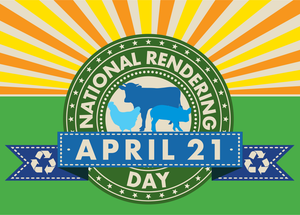Growth is essential at all stages of life, for if not we become myopic and/or irrelevant.
October 6, 2018

I don’t recall the exact details, but I do remember watching CNBC’s Squawk Box one morning several years ago and they were featuring corporate executives talking about their young adult children – young professionals now in the workplace. The key question directed at each of the parents revolved around what advice was important for their children now that college was behind them and they were making their way in the professional world.
One mother particularly caught my attention. She said something to the effect of, “I constantly ask my son if he’s taking enough risk.” She went on to explain that she was always concerned her son might become complacent or comfortable –- and then ultimately find himself stuck-in-place as the world transitioned around him. She talked at length about her encouragement that he push the envelope, and ultimately fail at some things, to ensure that he was ready for the next challenge or transition that would inevitably come his way.
That discussion has stuck with me. The mother’s wise sentiment is true not only for young people, but for all of us –- no matter where we are in our career. Growth is essential at all stages or else we become myopic and/or irrelevant. However, that’s not a comfortable thought. Learning, stretching and growing requires a lot of energy and commitment and often discomfort or pain to really benefit.
But it’s all worth it! James Hollis addresses this in his book, “Finding Meaning In the Second Half of Life.” The principle he lays out is true whether you’re 25 (and still in the first half of life) or 55 (and find yourself in the second half of life). Hollis explains that: Each morning the twin gremlins of fear and lethargy set at the foot of our bed and smirk. Fear of further departure, fear of the unknown, fear of the challenge of largeness intimidates us back into our convenient rituals, conventional thinking and familiar surroundings. To be recurrently intimidated by the task of life is a form of spiritual annihilation.
On the other front, lethargy seduces us with sibilant whispers: kick back, chill out, numb out, take it easy for a while … sometimes for a long while, sometimes a lifetime, sometimes a spiritual oblivion…
The daily confrontation with these gremlins of fear and lethargy obliges us to choose between anxiety and depression… Anxiety will be our companion if we risk the next stage of our journey, and depression our companion if we do not…
Faced with such a choice, choose anxiety and ambiguity, for they are developmental, always, while depression is regressive. Anxiety is an elixir, and depression is a sedative. The former keeps us on the edge of our life, and the latter in the sleep of childhood.
In other words, you must choose one of two paths, each and every day. Going one way, you settle in and embrace lethargy. That’s so alluring because it’s so easy. You tell yourself you’ve made it, you’ve earned your spot and it’ll be smooth sailing from here.
But lethargy is deceptive, because the gremlin doesn’t foretell of boredom, despair and/or regret down the line, and it’s that regret that is the worst problem of all. We’ve all met (or worked with) individuals who continually talk about the glory days and have become bitter because the world has passed them up. The ultimately succumbed to lethargy.
Alternatively, that leaves you with the other path, fear. It’s so hard to embrace. None of us like to be uncomfortable. It takes energy and courage to push through day after day, but it’s worth it.
To be sure, when Hollis talks about fear, he’s not referencing or embracing unhealthy cowardice or needless worry –- especially the latter as it simply serves to sidetrack from achieving bigger purpose. In fact, to the contrary, Hollis would argue to put that aside; accordingly, he cites Carl Jung’s position on the role of fear in our lives: “Fear is a challenge and a task, because only the boldness can deliver from fear. And if the risk is not taken, the meaning of life is somehow violated.”
That’s precisely what our CNBC mother/executive is telling her son; she’s channeling Jung in her exhortation towards risk. And Hollis would echo her encouragement. Sure, it’s scary along the way. There’ll be some discomfort, anxiety, and trepidation. But it’s also the only path where we ultimately find fulfillment. And therein the end justifies the means.
About the Author(s)
You May Also Like
.png?width=300&auto=webp&quality=80&disable=upscale)
.png?width=300&auto=webp&quality=80&disable=upscale)

